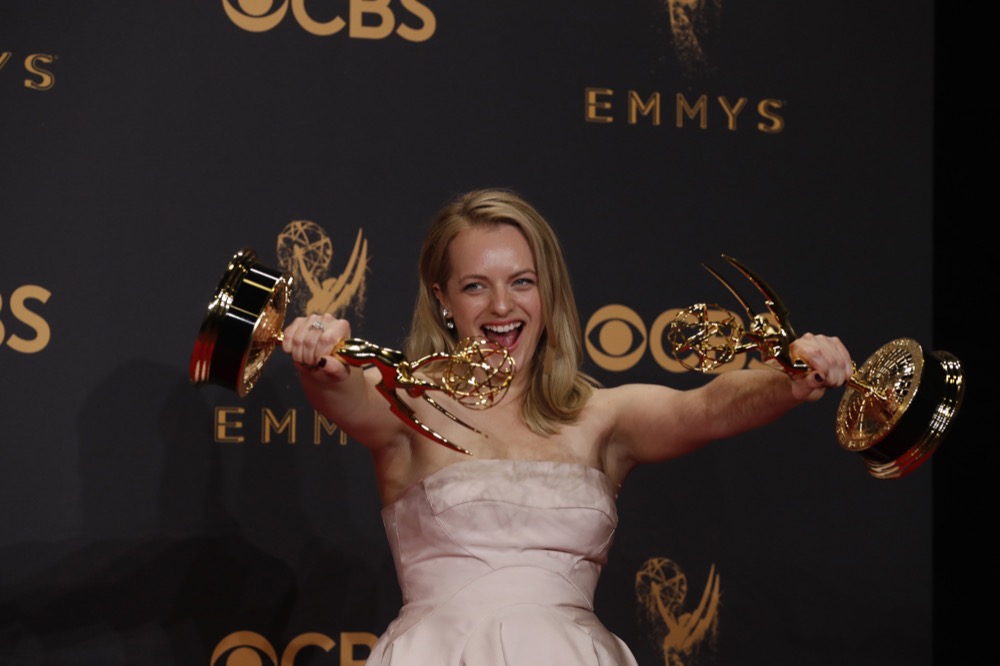Cadenza | TV
What you missed at the Emmys: A look at the biggest winners
The Emmys this year were emotional and significant, but maybe a little unexciting. With no “La La Land”/“Moonlight”-esque mix-ups like at the Oscars earlier this year, the night’s drama took a deeper undercurrent in the form of representation, numbers and speeches. If you missed Sunday’s awards ceremony, here’s the quick lowdown:
“Handmaid’s Tale” sweep
To few people’s surprise, “The Handmaid’s Tale” went home with a near sweep of outstanding drama categories, including best series, best actress, best supporting actress, best directing and best writing. The chilling and masterful show marks a turning point for Hulu, who, with the help of “The Handmaid’s Tale”, won the fourth most awards of any network this year. Only five years into its original television programming, Hulu’s quick rise proves just how volatile the leaders and losers of TV can be.
 Allen J. Schaben | Los Angeles Times
Allen J. Schaben | Los Angeles Times Elisabeth Moss of The Handmaid’s Tale poses in the Trophy Room at the 69th Primetime Emmy Awards Sept. 17, 2017.
HBO leading
But the ultimate leader isn’t too volatile. Even without “Game of Thrones” to pad its wins this year, HBO still came out nine wins ahead of digital streamer Netflix. Helped by “Big Little Lies,” “Veep” and more, HBO’s lock at the top proves that the premium cable channel will survive and thrive after the final seasons of “Game of Thrones” and “Veep.”
Diverse wins
This year marked progress for non-white winners, with black actor Sterling K. Brown (“This Is Us”), Asian actor Riz Ahmed (“The Night Of”), black actor/director Donald Glover (“Atlanta”) and black writer Lena Waithe (“Master of None”) all took home hardware. Winners celebrated these forward steps in their awards speeches, thanking audiences for listening to diverse voices in their content choices.
An Emmys for womankind
Though the Emmys usually have gender parity in performers, women also won awards for directing for a drama series and writing for a comedy series. And truly, women gave amazingly powerful speeches this year. Lena Waithe’s encouragement of diverse stories and Nicole Kidman’s condemnation of domestic abuse were compelling and heartfelt. Most touching was Ann Dowd’s tearful acceptance speech, in which she seemed honestly surprised to have won. Winners emphasized how important roles for women are and how Hollywood was on the right track.
 Allen J. Schaben | Los Angeles Times
Allen J. Schaben | Los Angeles Times Nicole Kidman poses in the Trophy Room at the 69th Primetime Emmy Awards in Los Angeles on Sunday, Sept. 17, 2017.
TV can’t escape politics
Ah, Sean Spicer. A source of much controversy and difference of opinion, Sean Spicer’s guest appearance to make fun of the crowd size was proof that the TV industry can’t separate itself from the modern political landscape. President Donald Trump was ever-present during the course of the night—maybe too present, according to some critics of Colbert’s hosting. Certainly, with wins like “The Handmaid’s Tale,” “Last Week Tonight with John Oliver,” “Veep” and Alec Baldwin as President Trump on “Saturday Night Live,” the TV academy is in a pattern of rewarding political consciousness and liberalism.
Forward progress
With racial and gender diversity among winners, this year’s Emmys marked some real, tangible progress in entertainment’s diversity. As Bruce Miller, the showrunner for “The Handmaid’s Tale,” said at the end of his acceptance speech, “Go home and wrap it up. We have a lot of things to fight for.” With hundreds of shows “on air” annually now, the TV academy members are encouraging experimentation and the upheaval of old, white-washed, male-driven models of broadcasting. A new era of TV awaits.
